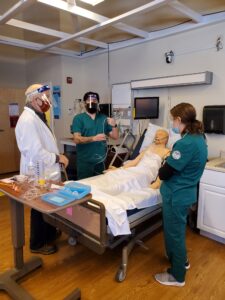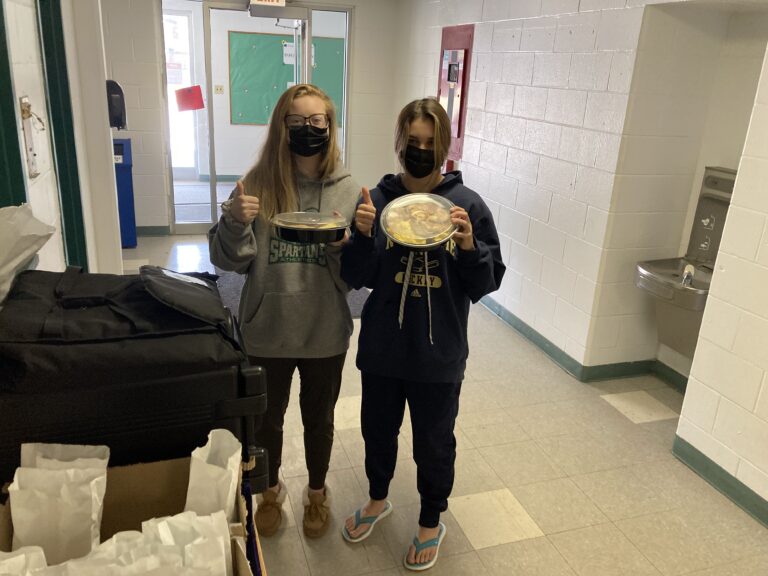Nursing program faces COVID

COVID-19 impacted all Castleton students, but when it comes to the nursing department, the impact was critical.
On March 13, 2020, all classes were forced to switch to online, and for the nursing department that meant the suspension of all the clinical classes at the Rutland Regional Medical Center.
The clinical classes provide a beneficial experience for nursing students to experience first-hand what it is like to meet patients, work with patients and interview them.
They sometimes get to actually take care of the patients too, which is very important for clinical rotation.
But that experience was taken away because of the pandemic.
“I cried because I was so disappointed for students that they would never have that opportunity,” said Bonnie Hanley, an assistant nursing professor who teaches mental health and psychiatric nursing.
“Mental health unit is a very private place and patients don’t expect outsiders to come in, but students are allowed for the experience,” Hanley said.
Half of her roughly 25 students did not get experience in the hospital due to the difficulty in obtaining personal protective equipment during the nationwide shortage and the potential risk to the student.
“I was more disappointed than students, because I know what they are missing, but they just don’t understand what they are missing,” she said.
Their clinical classes had to change into online case studies, which Hanley said were not bad, but can’t replace the in-person interaction nursing students get in the hospital setting.
“I had never had the opportunity to work in the hospital as a nurse,” said Shino Suzuki, a junior nursing student. “The clinical rotation was supposed to be a bridge to connect the hospital and me, so when it was canceled, I got shocked and nervous.”
But Suzuki also pointed out the benefit of online classes. Suzuki lives in the dorm in Rutland and because she didn’t have to go to campus to take classes, she could spend her time more productively on her work.
“Students adjusted so well. They adjusted really quickly but that’s the way people are that are attracted by nursing,” Hanley laughed. “We are very flexible people, we are overachievers, we do what has to be done.”
As the spring semester approached, COVID cases had decreased and PPE was more available. Vaccines began being distributed. A decision had to be made to allow students to participate in the clinical settings with the knowledge that COVID exposure was a risk for any patient with asymptomatic presentation.
Although they have been allowed back into the hospital, it has been very complicated because the hospital is only allowing a few students to come at a time. So, students can only attend the clinical rotation in the hospital in the allocated time.
“COVID was viewed as another infectious disease, albeit a deadly one, that nurses could be exposed to on any given day. It is what we do as nurses, care for every patient to promote the best outcomes,” said Susan Shayne, who coordinates nursing clinicals
She says COVID forced her to make changes and that collaboration and communication were key.
She said she had to provide students proper training in the use of PPE, advocate for inclusion of nursing students in the 1 A category for healthcare providers for vaccination opportunities and redesigning rooms keeping in mind occupancy restrictions. Some classes remained virtual and some went in-person.
“It was not scary to work in the hospital during the pandemic, because I trust school,” said Suzuki, who added that students weren’t exposed to known COVID patients. “I felt protected.”
But COVID not only impacted their class schedules and faculty duties, it canceled the most memorable annual event for them.
Because of the pandemic, Castleton graduates did not get to have the graduation ceremony last year. In addition, the graduates also missed the in-person pinning ceremony, a cherished ritual for nursing students and professors attended by parents and family.
But last year, the opportunity was taken away and instead of doing it in person, the Zoom version of the pinning ceremony was held. In the ceremony, parents, not faculty, put pins on them.
“It was the most painful moment,” said Hanley. “Because, it is a once-in-a-life experience.”







